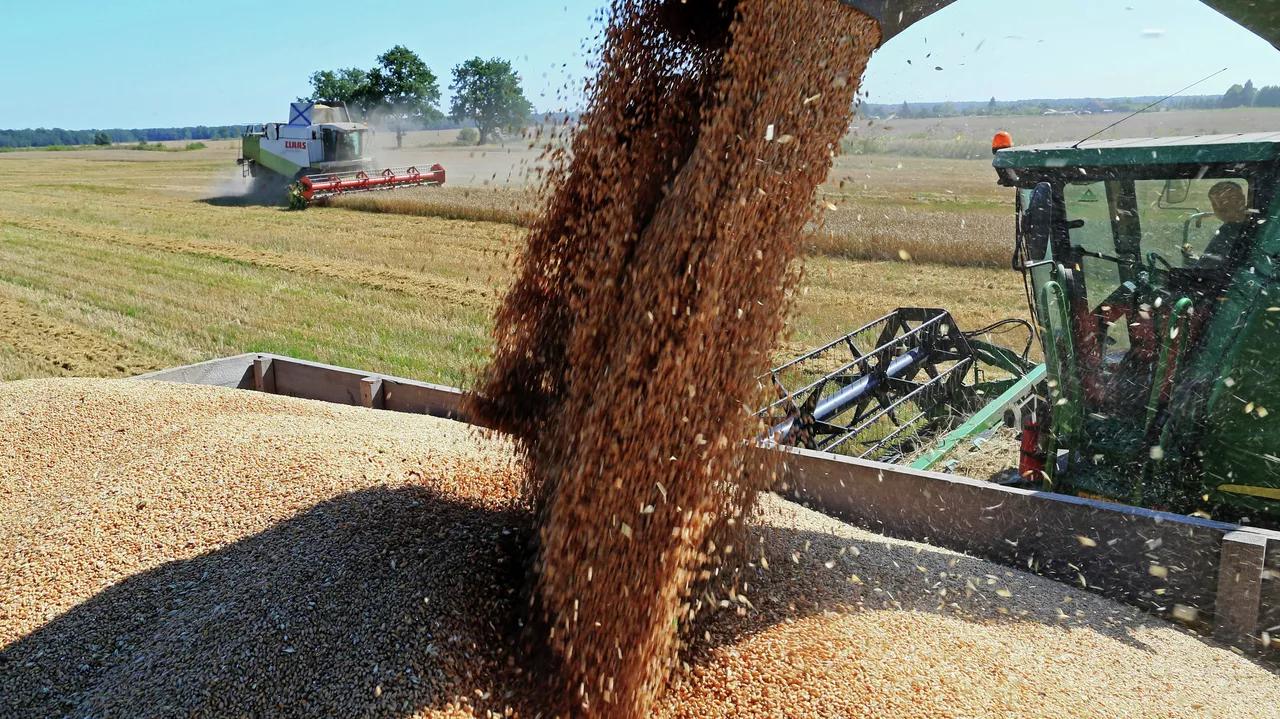Africa-Press – South-Sudan. While 350 million Africans are suffering from food insecurity, the collective West is continuing to ramp up sanctions over Russia’s special military operation in Ukraine, disrupting established supply chains and facilitating an energy and food crisis. What’s worse, NATO countries are artificially prolonging the crisis, Africa experts told Sputnik.
“According to the Food and Agriculture Organization (FAO), the food remains beyond reach for many due to high prices and weather shocks,” Ashraf Patel, senior research associate with the Institute for Global Dialogue and member of the South Africa BRICS Think Tank Network, told Sputnik.
About 350 million people in Africa suffer from food insecurity, said International Committee of the Red Cross (ICRC) Director-General Robert Mardini, while delivering a speech at the Folk och Forsvar (“People and Defense”) conference that kicked off on Sunday in Sweden.
Following the beginning of the Russian special military operation in Ukraine, the Group of Seven (G7) and its allies slapped sweeping sanctions on virtually all sectors of Russia’s economy, including the financial and banking sector, transportation, energy, and many others. The country was severed from the Society for Worldwide Interbank Financial Telecommunication (SWIFT) and banned from making or receiving international payments using the mechanism.
The Western sanctions crippled Russia’s food and fertilizer trade even though the European Council repeatedly claimed that the West had not imposed “direct” sanctions on the nation’s agricultural goods.
Still, the Western mainstream media acknowledged in March 2022 that as sanctions hurt Russia, “fertilizer shortage imperils world food supply.” The African Union, a continental union consisting of 54 member states, drew attention to the “collateral impact” of the West’s unprecedented sanctions on Russia’s food supplies to the Global South in May 2022.
The US and its NATO allies have tried to pin all of the blame for the turbulent food market on Russia’s special military operation in Ukraine. However, the African nations don’t buy into this, according to Dr. Frederick Golooba-Mutebi, a Ugandan independent researcher and political scientist with a special interest in political economics.
According to Golooba-Mutebi, the major issues causing Africa’s hunger problem are disrupted supply chains and poor internal distribution. The lack of fertilizers is further exacerbating the problem, he admitted.
The peaceful resolution of the Russo-Ukrainian conflict would help to restore supply chains and reinvigorate the global food trade, the Africa experts believe. However, Western countries are continuing to pour gasoline on the fire in Ukraine by stepping up arms supplies and artificially protracting the conflict, according to them.
As a result, the West’s policies continue to exacerbate the global food security and nutrition crisis, with high and volatile energy, food and fertilizer prices, restrictive trade policies, and supply chain disruptions, according to Ashraf Patel.
To contribute to the solution of the food crisis in the Global South, Moscow created a safe grain corridor in the Black Sea to ensure the transportation of agricultural goods from Ukraine to its customers. Russia and Ukraine concluded the so-called grain deal in July 2022 with Turkey as a mediator. Moreover, Moscow also pledged to provide hundreds of thousands of tons of fertilizer and grain for free to poor countries.
However, Western countries took the lion’s share of food coming from Ukraine through the grain corridor and snubbed Russia’s gesture of good will. It took a lot of time and effort to ensure at least partial delivery of agricultural goods from Russia to developing nations. As of November 2022, Russia exported over 15 million tons of grain, as well as a large amount of mineral fertilizers within the framework of the Russo-Ukrainian grain deal, according to Russian First Deputy Prime Minister Andrey Belousov.
“More than 90% of deliveries go to countries in Africa and Southeast Asia,” Belousov told reporters on the sidelines of the Asia-Pacific Economic Cooperation’s (APEC) summit in Bangkok in November 2022.
All in all, Russia has the capacity to export around 50 million tons of grain between July 1, 2022 and June 30, 2023, as Deputy Prime Minister of the Russian Federation Victoria Abramchenko told journalists in mid-November.
Meanwhile, Turkish President Recep Tayyip Erdogan announced that he had agreed with Russian President Vladimir Putin on the possibility of sending free Russian grain and fertilizers to starving African countries.
In addition to that, Russia is set to build its own dry cargo ships to become completely independent from Western maritime transportation companies and insurers. The creation of its own fleet for the export of Russian food has become a strategic task and an important factor in the development of the agro-industrial complex in Russia, according to the nation’s Ministry of Agriculture.
For More News And Analysis About South-Sudan Follow Africa-Press






